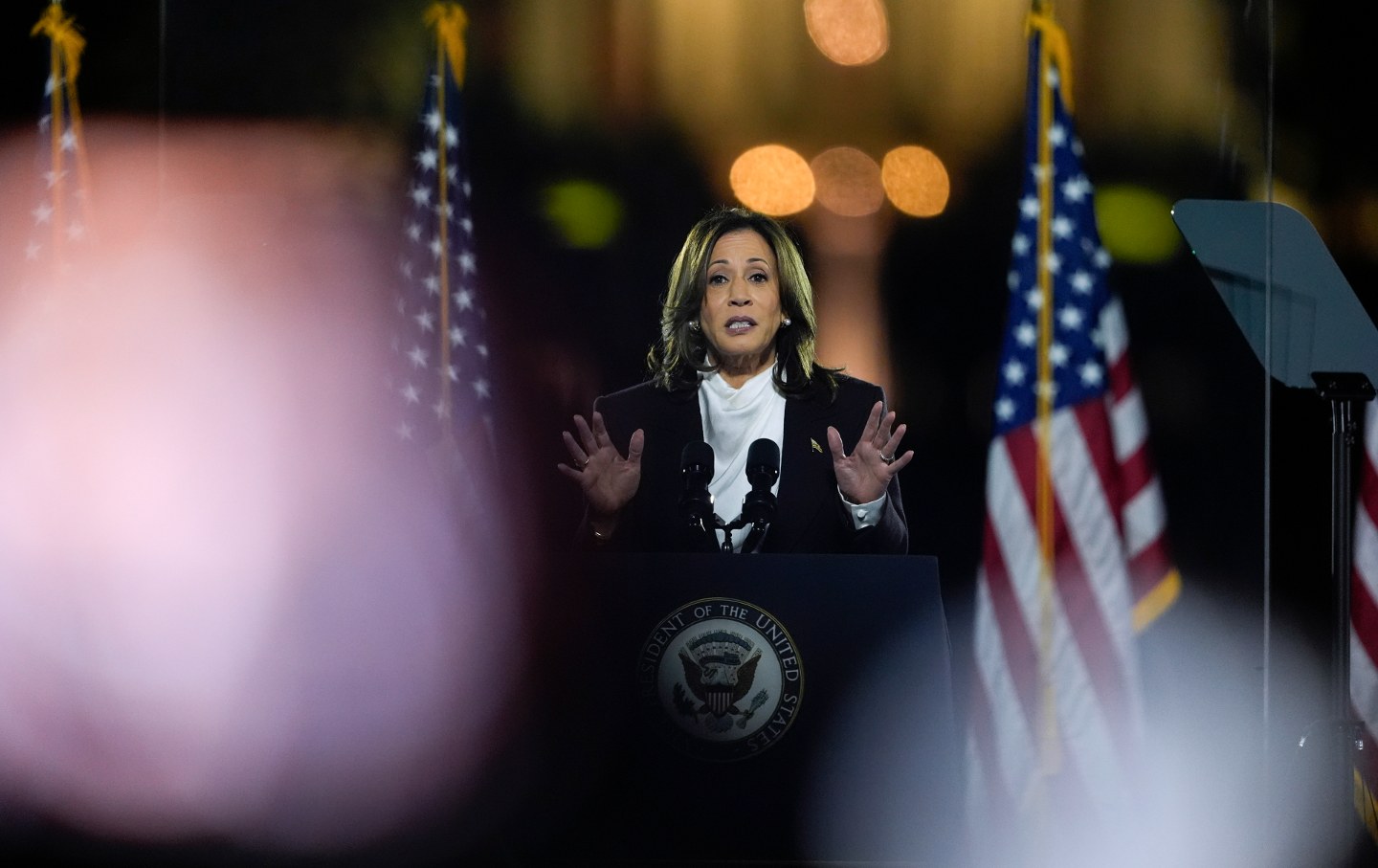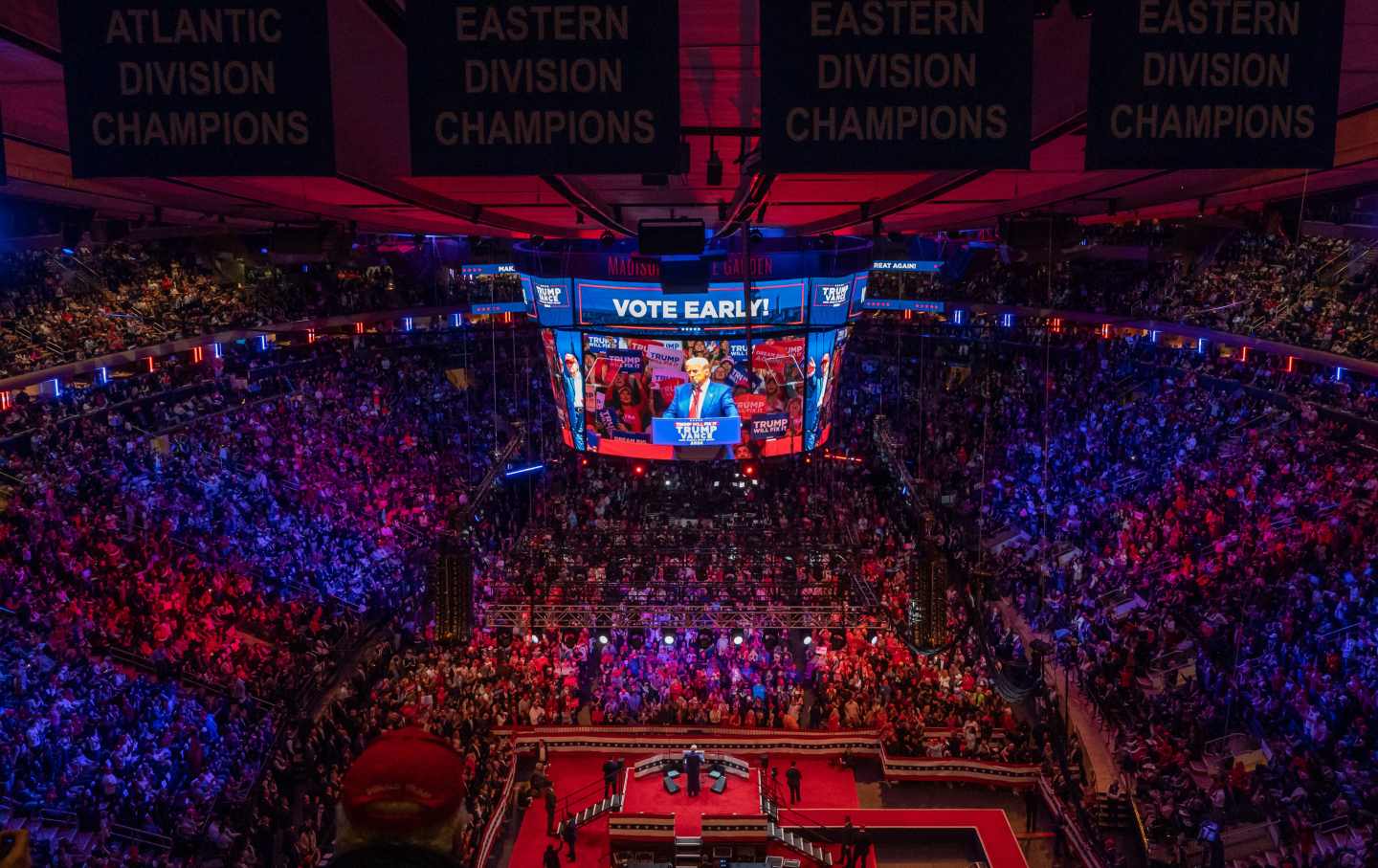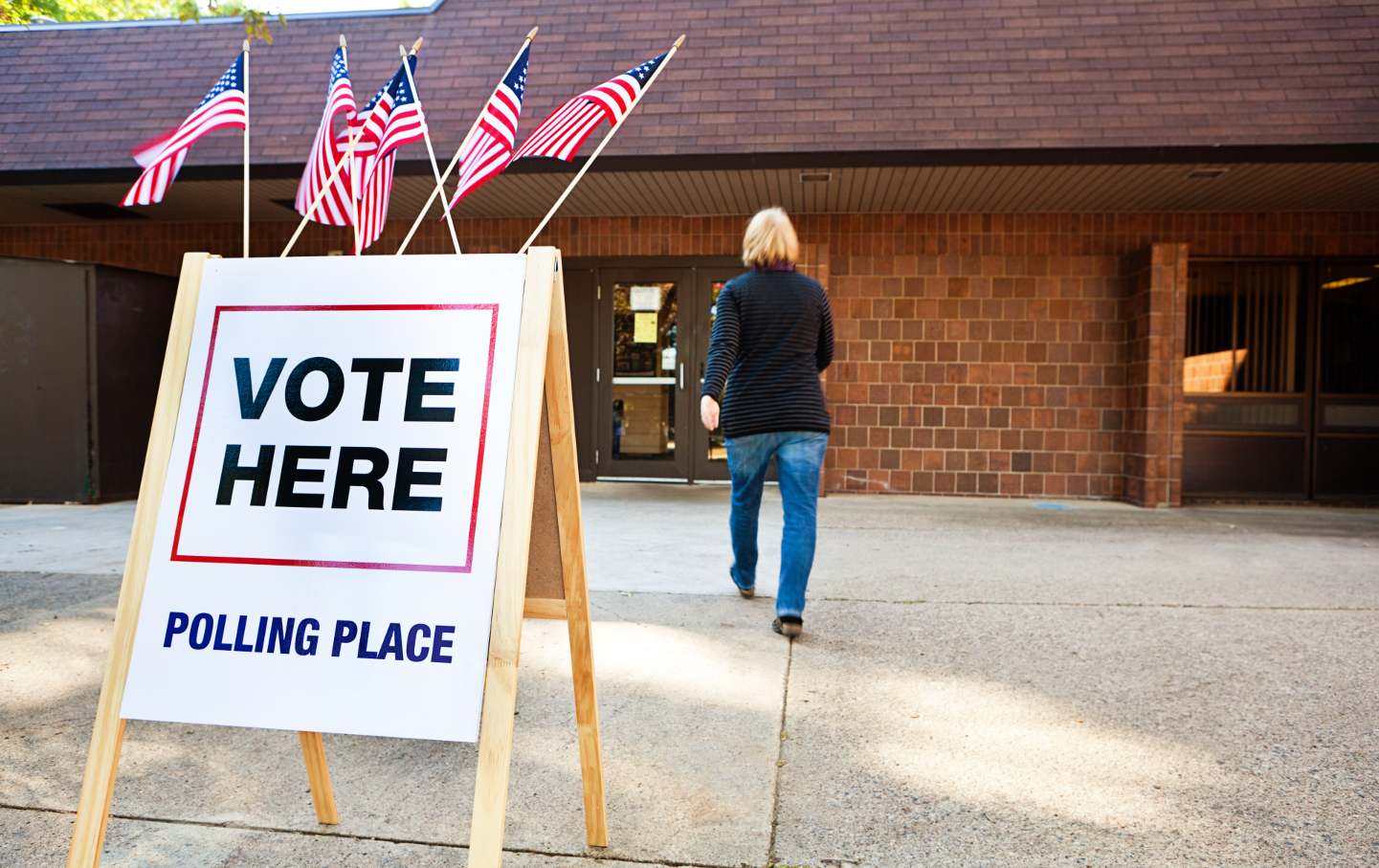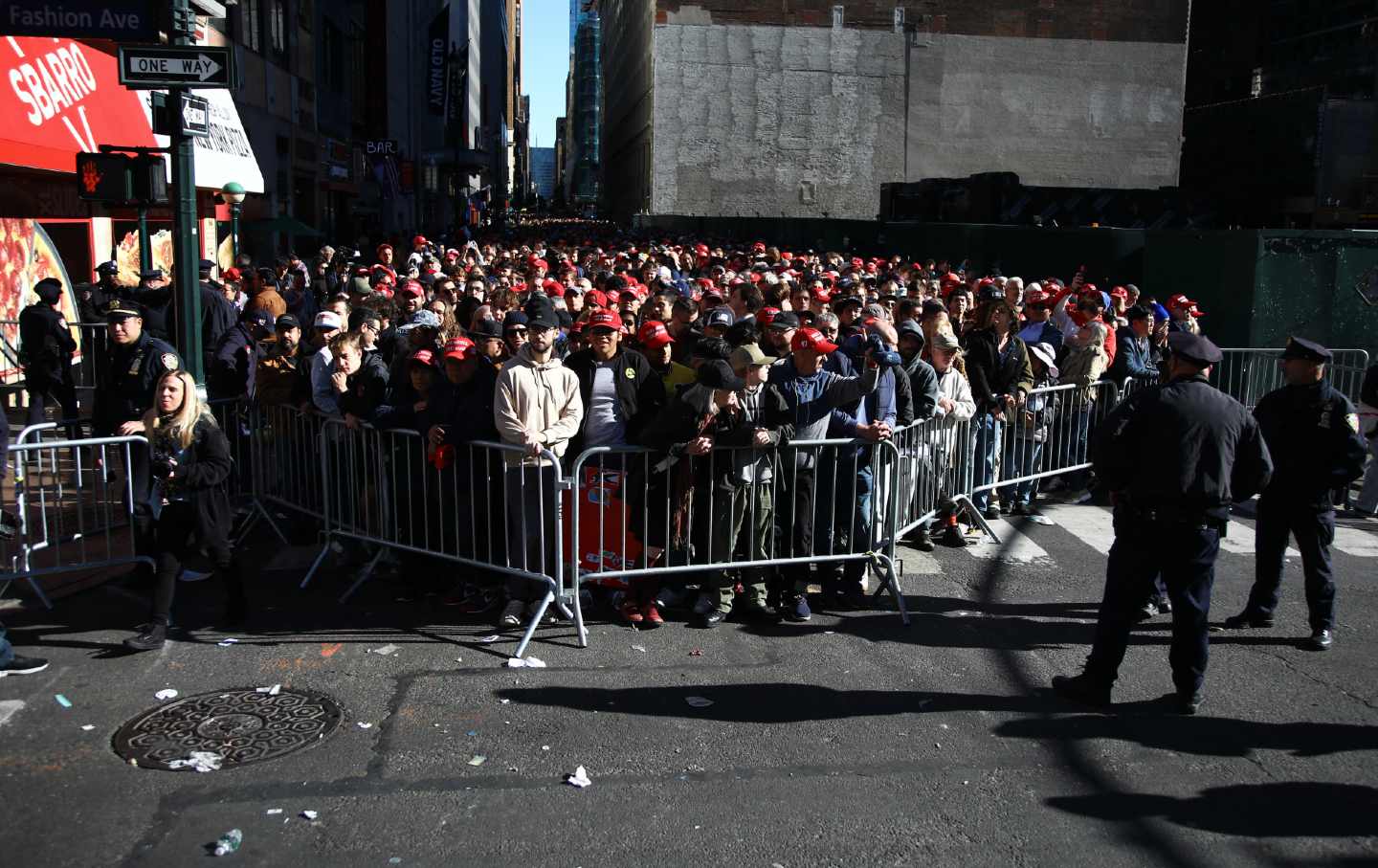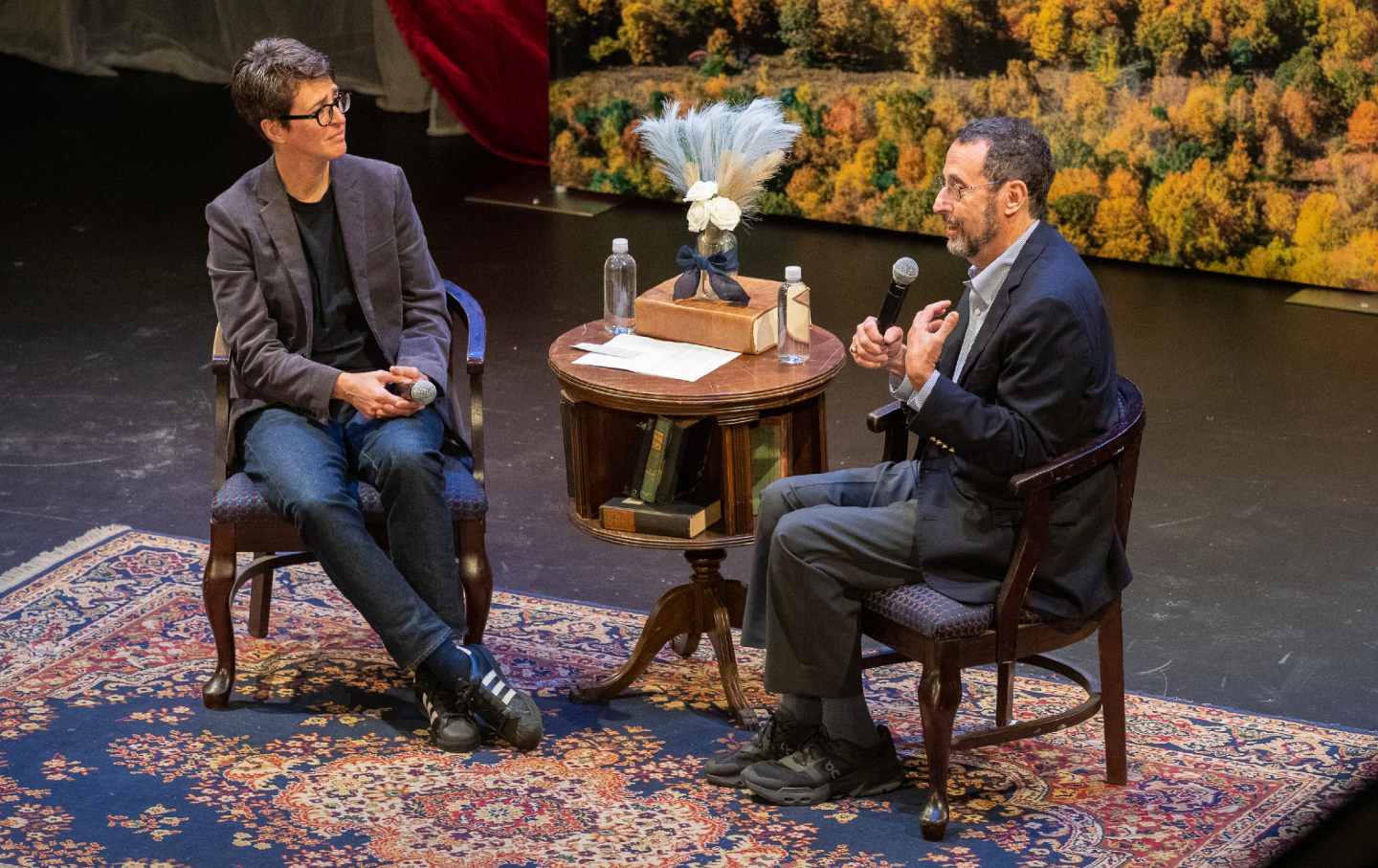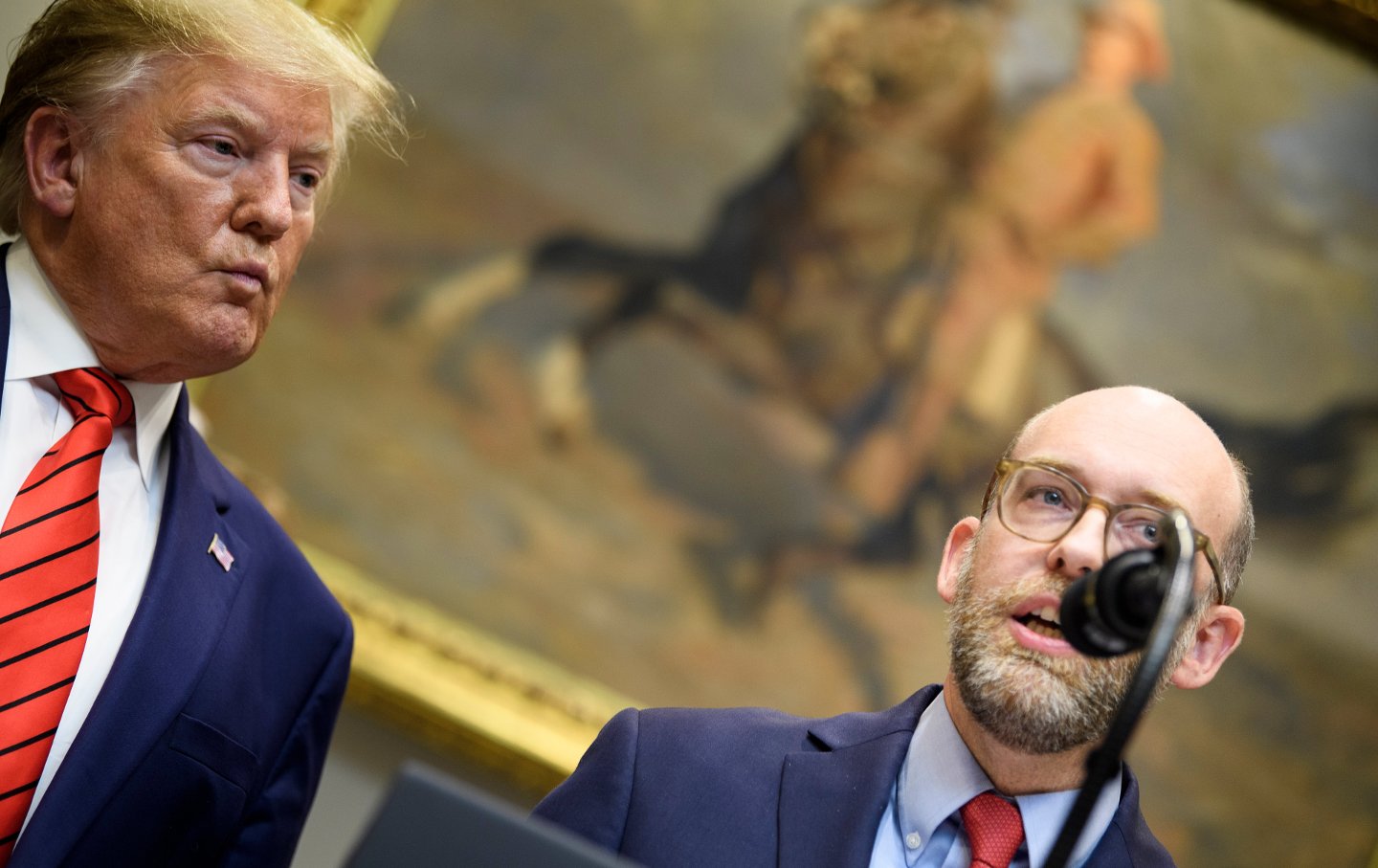Biden’s Salvo Against Party “Elites” Is a Cop-Out
From his perch in the nation’s highest office, the president has positioned himself as the underdog—against elected Democratic representatives.
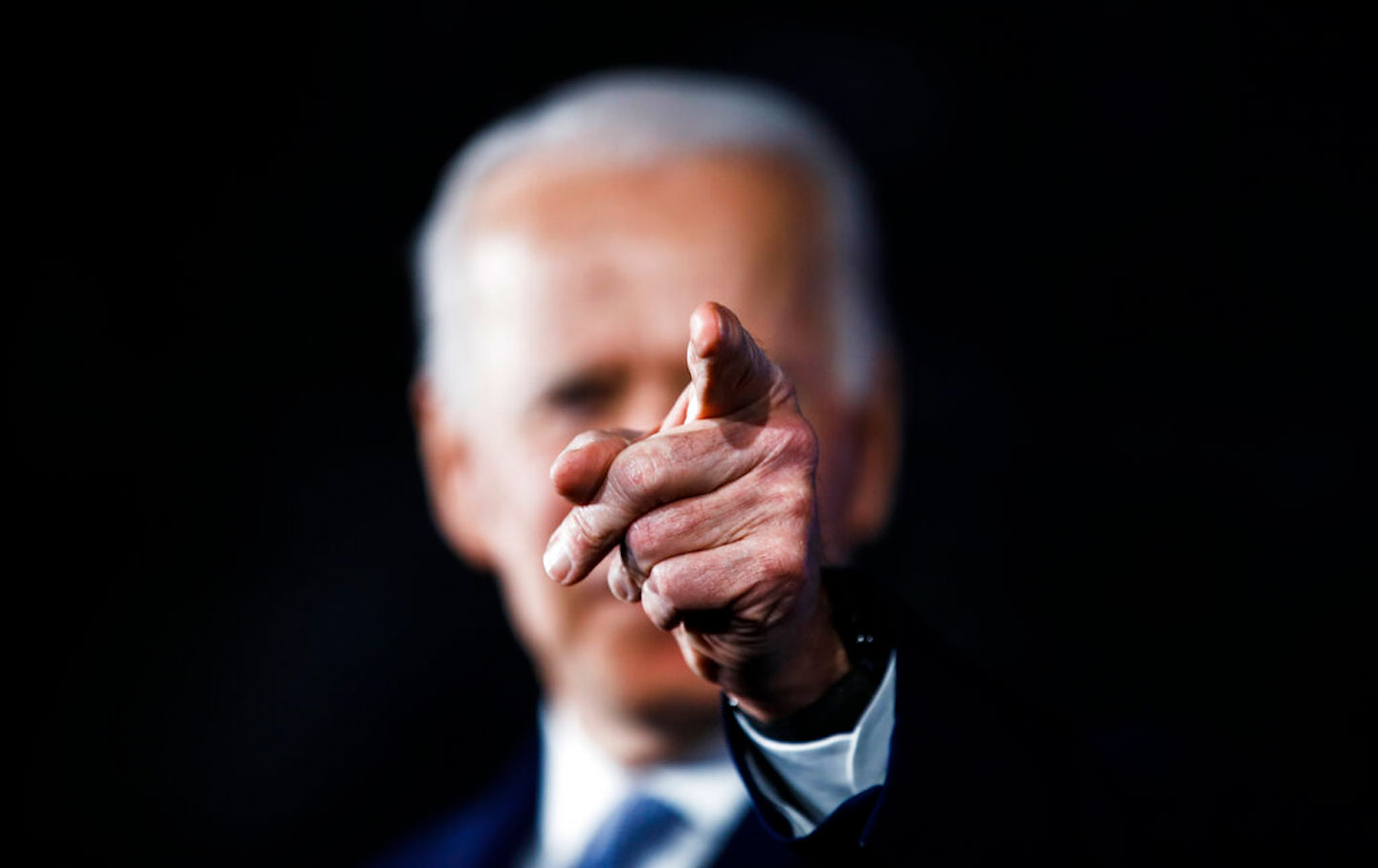
After a weeklong bout of near-hibernation, interrupted by a terrible interview with ABC News broadcaster George Stephanopoulos, President Joe Biden has emerged with a pseudo-populist rallying cry for fellow Democrats: He is on the warpath against party “elites.” That was the chief refrain of yesterday’s news-making call to the president’s favorite pundit show, MSNBC’s Morning Joe. “I’m getting so frustrated by the elites” in the Democratic Party, Biden announced, before offering them an ultimatum akin to his campaign-trail push-up challenges to detractors: “Run against me. Go ahead. Announce for president. Challenge me at the convention.” For good measure, he derided the track records of his critics in the press and the poll watchers: “They’re big names, but I don’t care what those big names think. They were wrong in 2020. They were wrong in 2022 about the red wave. They were wrong in 2024.”
These talking points echoed the gist of a letter Biden sent to Congress the same day, urging elected Democrats to move on from the raging debate over his suitability for a reelection run after his disastrous performance at the June presidential debate. After offering a disingenuous account of a primary season featuring no serious challengers and no candidate debates, Biden declared that “the voters of the Democratic Party have voted…. Do we now just say this process doesn’t matter? That the voters don’t have a say?” He continued in the same register of anti-elite dudgeon:
I feel a deep obligation to the faith and trust that the voters of the Democratic Party have placed in me to run this year. It was their decision to make. Not the press, not the pundits, not the big donors, not any select group of individuals, no matter how well intentioned. The voters—and the voters alone—decide the nominee of the Democratic Party. How can we stand for democracy in our nation if we ignore it in our own party? I will not do that. I cannot do that.
There’s no shortage of plain cognitive dissonance in such appeals—if the president of the United States is not an elite figure, and a big-name one at that, who is? And his loudly advertised war against party elites pretty much lasted the length of his call to Mika Brzezinski; soon after, Biden reportedly proceeded to a call with major Democratic donors to field their questions about the race—all without having conducted a voters’ town hall since 2021. What’s more, Biden’s whole narrative of humbly acceding to the wishes of Democratic base voters flies in the face of recent political history: His rapid movement into the pole position during the 2020 primary season was largely a coordinated effort engineered by party leaders and donors, as his chief primary rivals simultaneously suspended their campaigns. And the chief aim of that maneuver was to stave off Bernie Sanders’s insurgent presidential run, which drew heavy support from the party’s younger and reform-minded base. Four years later, as the sitting president leaned into the outsize financial and organizational advantages of incumbency, this election season’s primaries were an even more perfunctory Potemkin spectacle.
Beyond this inconvenient recent historical record, however, there’s an ungainly side to this 11th-hour anti-elite crusade—and not simply because Biden, after his coming of age as “Scranton Joe,” was once widely known as “the senator from MBNA” (a credit card company from his home state of Delaware) for the extreme solicitude he showed for moneyed interests on Capitol Hill. Just for starters, the broadsides against the pundits and the press echo a long-standing refrain on the American right—the idea that the media is operating from an elite-cabal playbook to undermine the otherwise hardy state of the true American republic. As I argued long ago, this formative right-wing crusade against “press bias” has supplied the template for nearly all the American right’s other culture-war campaigns. We commonly associate this charge with Trump and his former chief strategist Steve Bannon, but it harks back to the Nixon administration’s attack on journalists as “impudent snobs” and “nattering nabobs of negativity.” In the hands of Biden’s extremely online defenders, it plays out into the same dangerous and demented shoot-the-messenger logic. (Nate Silver, of all people, has published a thorough and persuasive dismantling of the Biden camp’s anti-press broadsides.)
More urgently for the Democratic Party’s immediate electoral prospects, however, Biden’s allied sniping at the wrongness of polling is itself just plain wrong. Polls didn’t underestimate Biden’s prospects in 2020—indeed, they considerably overrated them, particularly in the election-deciding swing states. Polls also were not dramatically off during the 2022 midterms; where turnout numbers flagged, it was among younger voters, non-white voters, and women—the very constituencies that the Democrats need to mobilize in order to have a shot at defeating Trump this year.
And polling this year so far undermines Biden’s claim that the voice of the people is being undermined by cunning party elites and faithless pundits. Indeed, the trend is very much the opposite: Biden is trailing Trump badly, especially in swing-state polling. (Short-term bumps in Biden’s swing-state showing still have Biden behind, as the Trump campaign prepares to direct its swelling war chest toward these critical battlegrounds.) As CNN poll analyst Harry Enten notes, Biden is now experiencing his lowest-ever numbers against Trump, and is the first Democrat to be trailing a GOP rival in July of an election year since 2000. On the key question of the viability of his candidates, poll numbers are scarcely more encouraging; a New York Times/Siena poll conducted prior to the June debate found that 64 percent of all voters favored replacing Biden as the nominee, and 48 percent of Biden voters actually supported swapping him out. As former Obama speechwriter Jon Favreau argues, “This is not an elite thing. This is not a media thing. This is not a one-bad-debate-freakout thing.”
Nor is it a cosseted Capitol Hill thing. There’s a reason House members are the first group of elected officials calling for Biden to step aside—and their numbers are bound to increase over the course of the week, as Congress returns from the July 4 holiday. Democratic representatives from purple and right-leaning districts know that Biden’s dismal showing at the debate and in the polls mean that they will be wiped out on a Biden-led ticket. It’s also true that the House, for all its manifest flaws, is the proper power base of a party that genuinely seeks to represent ordinary Americans—that was very much the case for the New Deal Democratic Party’s sustained nearly 60-year control of the chamber. One of the many distressing anti-populist trends of the actual neoliberal party elite’s capture of the Democratic Party is that nearly every successful Democratic presidential campaign has been greeted in short order by a ritual surrender of the Democratic House majority. For Biden to publish a letter dismissing the urgent anxieties of Democratic House members without offering any plan to reverse the political realities on the ground is itself a symptom of the party’s elite capture, not a salvo against it.
Yet here we are, with the most powerful man on Earth posturing as the persecuted victim of shadowy elites, shoddy polling, and a feckless media. It’s not so much a strategy to defeat Donald Trump as a playbook for imitating him.
Can we count on you?
In the coming election, the fate of our democracy and fundamental civil rights are on the ballot. The conservative architects of Project 2025 are scheming to institutionalize Donald Trump’s authoritarian vision across all levels of government if he should win.
We’ve already seen events that fill us with both dread and cautious optimism—throughout it all, The Nation has been a bulwark against misinformation and an advocate for bold, principled perspectives. Our dedicated writers have sat down with Kamala Harris and Bernie Sanders for interviews, unpacked the shallow right-wing populist appeals of J.D. Vance, and debated the pathway for a Democratic victory in November.
Stories like these and the one you just read are vital at this critical juncture in our country’s history. Now more than ever, we need clear-eyed and deeply reported independent journalism to make sense of the headlines and sort fact from fiction. Donate today and join our 160-year legacy of speaking truth to power and uplifting the voices of grassroots advocates.
Throughout 2024 and what is likely the defining election of our lifetimes, we need your support to continue publishing the insightful journalism you rely on.
Thank you,
The Editors of The Nation

